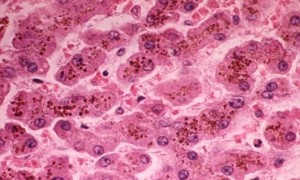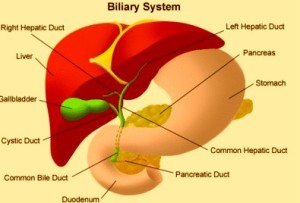What is Dubin-Johnson Syndrome? This disorder referred to as DJS is a genetic disorder that is very rare and causes an individual to have jaundice symptoms through out their entire life. DJS is caused by the liver not being able to break down properly bilirubin which is created by the liver for breaking down the red blood cells that are in the body but are no longer needed.
Bilirubin a brownish yellow substance produced in the liver and stored in the bile, available to break down worn out red blood cells as well as eliminated thru feces or stools – giving them their brownish color. If the liver fails to metabolize properly this bilirubin, it builds up in the blood system and causes one of the symptoms which is jaundice.
Symptoms of Dubin-Johnson Syndrome
Characteristically, individuals with DJS only have jaundice as a symptom. But some patients might experience the following:
• Abdominal pain that is mild
• Nausea
• Vomiting
• Weakness
The jaundice symptom will be present thru out the individual’s life and in some cases can worsen due to some factors that are environmental including:
• Alcohol
• Birth control medications
• Infections
• Pregnancy
Complications with this disorder are rare but they do occur and can include jaundice becoming severe as well as a decline in liver functioning.
Jaundice is a yellowish discoloration of mucous membranes, skin as well as the whites of the eyes.
Causes of Dubin-Johnson Syndrome
DJS is rare and is only caused by genetics which makes it a condition that is inherited. DJS is referred to as an “autosomal recessive inheritance” which means that individuals only develop DJS if both of their parents have the gene that is defective and causes this disorder.
But, even if both parents have one of the mutated genes, they typically will not have any signs or symptoms of the disorder. The symptom that is primary – jaundice – involves yellowing of skin as well as the whites of the eyes. Jaundice often does not develop until the individual reaches the age of puberty, adolescence or adulthood.
Diagnosis and Treatment of Dubin-Johnson Syndrome
If an individual has the symptom of persistent jaundice, testing needs to be done for DJS. These tests will include lab work to check the level of bilirubin present in the blood, a test of the urine as well as in some case a biopsy of the liver.
Those with DJS usually will have a life span that is normal with few complications from this disorder and there is usually no treatment needed. In some cases, the patient might be prescribed Phenobarbital as this is the medication with the capability of decreasing the bilirubin level in the system.
Even with this condition being rare and usually only causing jaundice, it is not considered a life threatening or serious condition; but, there are other disorders of the liver that can cause this one symptom that are possibly detrimental medical disorders. So, if an individual has any symptoms or signs of jaundice, it is vital that they see their primary care physician for evaluation.


